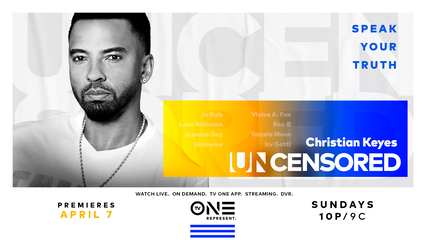
In today’s competitive global market and tough economic climate, earning a college degree has never been more important. It’s so important that President Obama has pledged to make sure that the U.S. has the highest proportion of college graduates in the world by 2020, and recently signed an initiative to boost educational excellence for African-American students to help reach that goal.
Are you on track to become one of these college graduates? Are you prepared to take your education to the next level? If so, you probably know that there are things you must do to be academically prepared for college, but you also have to know yourself and be a well-rounded student, according to education and college guidance experts. Here are some tips to consider as you start your journey to higher education:
Know That College is a Part of Your Path to Success
Many African-American students aren’t as prepared for college as their white counterparts because of lack of access to academically challenging schools in safe environments. But they also lag in higher education because college isn’t an expectation in some households.
“Parents need to convey from early on that college is not a choice or an option,” Karl Reid, Senior Vice President of Academic Programs and Strategic Initiatives at the UNCF, says. “It’s a requirement and an expectation.”
Reid notes that studies show that students who come from families where a college education was stressed go on to graduate and excel. If you have family or people who support your college goals, you are already on your way.
Make Sure That You Have Strong Study Skills
“Study skills are often overlooked and they are so, so important,” says Nina Marks, founder of Collegiate Directions, Inc., a Maryland nonprofit dedicated to providing college admissions counseling to low-income, first-time-to-college students. “Strong study skills are critical to life skills and help students become lifelong learners.”
Make sure that when you do your homework you are working without distractions. Turn off the TV or the radio and dedicate as much time as possible to uninterrupted study.
“Developing habits of learning and executing that work is critical to success,” Reid adds.
Participate in Academically Rigorous Pre-College Programs
Reid also recommends that students get involved in programs — after school, on weekends, during the summer — that prepare them for college. Programs like Upward Bound offer extra instruction in key subjects and mentoring to help you get into college and become a successful student.
Seek Out a College Guidance Counselor or Mentor to Help You Get to College
If you have a college guidance counselor at your school, meet with your counselor often and make your goals for college clear, the National Association for College Admission Counseling (NACAC) suggests. Counselors can help you select courses that you’ll need to apply for college and tell you when to take college admissions tests like the SAT and ACT. But if you don’t have a counselor, find a mentor who can help.
“Find someone, an adult in your school or an adult that you trust, who can help you make connections with a college admissions office and get you face time,” Marks says. “There is no substitute for face time.”
Know Who You Are
A big part of being ready for college and selecting the right college for you is being in tune with who you are, your strengths and aspirations.
“You should begin with a thoughtful snapshot of yourself,” Marks says. “Think of the things that you like to do; the things you do well and why that’s so.”
Reid adds that your identity as a good student matters. You don’t have to choose between being social and being smart, you can be both.
Stand Out
The NACAC says that the top factor in the college admissions selection process is grades. So your GPA should reflect all the hard work you’ve done and show that you can do the work in college. But besides grades and the types of courses that you took, colleges want know more about what you do outside the classroom whether through sports, arts or community service.
“Stand out authentically. If you twist yourself into a pretzel to be someone you are not, you’ll have to be that way for four years,” Marks recommends. “Colleges are boarding communities, so think of how you can contribute to these communities in the classroom and outside the classroom.”
Helpful Links:
National Association for College Admission Counseling
The NACAC has robust resources to help students and parents plan for college from freshman year in high school through senior year. The organization also hosts spring and fall college fairs so that students can meet college admissions officers in person.
The Empower Me Tour makes stops at college campuses around the country, hosting workshops like “Demystifying the Admissions Process” and “The Five Paragraph Essay," and featuring celebrity presenters like Boris Kodjoe and Kim Coles.
This is the organization responsible for the Standardized Aptitude Test, also known as the SAT, the test that many colleges use to help select students for admission. You can practice for the SAT here and get college-planning advice.
American College Testing Program (ACT)
The ACT is another college entrance exam that is required for admission at many colleges and universities. You can register for the exam and do practice tests here.
Students share the real deal about their college campuses through comments, photos and videos on this site.







